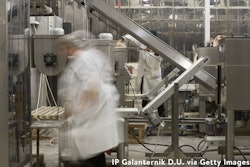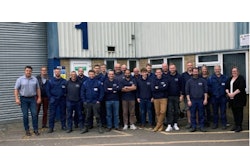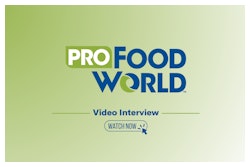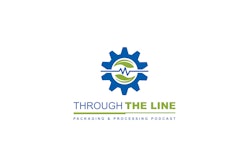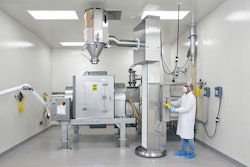 | Watch the full interview at ProFood World for more insights on total cost of ownership in food production. |
Low-cost imports, proprietary components, and lifetime cloud support: Red flag or TCO gold?
In this quickfire round on total cost of ownership, Greg Flickinger, CEO of Aloha Medicinals and American Botanicals, shares his takes on common buzzwords, and whether they signal long-term value or costly setbacks.
As he explains, some features sound like a promising way to save money, but can come with hidden costs in both dollars and downtime later. Some machine features do live up to expectations though, and can be trusted to improve operations.
Bryan Griffen: But to finish up, I'd like to have a little bit of fun with what I call a quickfire round. So it's short answers, fast paced. First thing that pops into your mind. Very short. So I'm going to throw some classic pitch buzzwords at you, and you tell me whether they're TCO gold or a red flag warning. All right. So low cost import.
Greg Flickinger: Bryan, I think I just gave you that example. So for me, it's a massive red flag, and I've got scars to prove it. So it's about parts, support, and reliability, can all be a problem.
Bryan Griffen: Very good. Includes lifetime cloud support.
Greg Flickinger: Oh, that's gold. If it's legit, and It includes updates, you can't go wrong.
Bryan Griffen: Sweet. Parts ship in ten weeks.
Greg Flickinger: Bryan, it may sound good, but it's a massive red flag because if the equipment goes down, it needs to be back up and running in minutes. And hours or too long. So if you're at weeks, then you can't afford the downtime. Massive red flag.
Bryan Giffen: Very good. No training required.
Greg Flickinger: That's a red flag as well. It's oversimplification because there's always complexities, and you might as well call them out and deal with them.
Bryan Griffen: Standard interfaces with the existing line.
Greg Flickinger: Definitely gold. Integration saves time and money. And Bryan, from your experience, you know that well.
Bryan Griffen: Yeah, yeah. All right. And the last one, proprietary components.
Greg Flickinger: Yeah, proprietary components is a big red flag because what does it do? It limits flexibility and cost controls. And I know earlier, Bryan, you mentioned BMW, and they're great cars. But if you have a failure on a BMW, you got to go back to the make, model, year, and maybe even the production run to get a very specific part. And it's custom and it's great. But on the flip side, you know, if you've got a Honda or a Toyota, you can run down to AutoZone and get an aftermarket part and you can replace it very inexpensively. So if I'm buying equipment, I want to have access to aftermarket parts at a low cost that I can get quickly.

